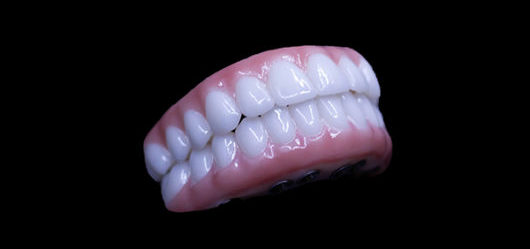Dental Sense Things To Know Before You Get This
The Of Dental Sense
Table of ContentsDental Sense Things To Know Before You Get ThisNot known Factual Statements About Dental Sense Dental Sense - An OverviewRumored Buzz on Dental Sense
are clinical tools operatively dental implanted into the jaw to restore a person's capability to eat or their look. They provide assistance for man-made (fake) teeth, such as crowns, bridges, or dentures. When a tooth is lost because of injury or condition, a person can experience problems such as fast bone loss, faulty speech, or changes to eating patterns that cause pain.Dental implant systems contain a dental implant body and oral implant joint and might also include a joint addiction screw. Root canal procedure. The dental implant body is operatively placed in the jawbone in place of the tooth's root. The oral implant abutment is normally affixed to the implant body by the abutment addiction screw and extends via gum tissues into the mouth to support the attached fabricated teeth
(https://filesharingtalk.com/members/608667-dentalsense1)Structure of The Dental Implant System selecting dental implants, talk with your oral company concerning the possible benefits and threats, and whether you are a prospect for the procedure. Things to think about: Your general health and wellness is an essential consider determining whether you are a great candidate for dental implants, the length of time it will certainly take to heal, and how much time the implant may remain in location.
Cigarette smoking may influence the recovery procedure and lower the lasting success of the implant. The recovery process for the dental implant body may take numerous months or longer, during which time you usually have a momentary joint in location of the tooth. the dental implant procedure: Very carefully adhere to the oral health directions provided to you by your dental copyright.
Not known Facts About Dental Sense
Implant failure can lead to the need for another surgery to take care of or change the implant system. Brings back the capability to eat Recovers cosmetic appearance Assists keep the jawbone from shrinking because of bone loss Protects the wellness of the bordering bone and gums Assists keep nearby (neighboring) teeth steady Improves top quality of life Damages to surrounding all-natural teeth during dental implant positioning Injury to the surrounding cells throughout surgical treatment, such as sinus opening Injury throughout surgical treatment (for instance, fracture of bordering jawbone) Poor function, such as seeming like the teeth do not attack together usually An experience that the tooth hangs or twisting in location resulting from a joint screw loosening Implant body failing (looseness of the implant body) because of systemic infection, which may be most likely in clients with unrestrained diabetes because of regional infection in bone and gums sustaining the dental implant body due to postponed recovery, which may be extra likely in clients that smoke Trouble cleaning up the gums around the implant, causing bad oral hygiene Neglected periodontal disease Post-surgical numbness as a result of nerve impingement or damage Always inform wellness care companies and imaging professionals that you have oral implants prior to any kind of magnetic resonance imaging (MRI) or x-ray treatments.
FDA is his response not knowledgeable about any damaging occasions reported for MRI or x-ray procedures with dental implants. Oral implants systems are commonly made from materials that follow international agreement standards of the International Company for Standardization (ISO) or ASTM International. These requirements have details of what makes a secure material.

A dental implant is a framework that changes a missing out on tooth. With screw-like tools, the doctor inserts a dental implant right into the jawbone, and it acts as an anchor for an artificial tooth, called a crown.
5 Simple Techniques For Dental Sense
Some people are not qualified for oral implant surgical treatment. It is for dental doctors to operate individuals with: intense illnessuncontrollable metabolic diseasebone or soft tissue condition or infectionIf these problems are dealt with, an individual can have the surgical procedure. In, dental surgeons avoid operating people with: If individuals with any one of the above undergo oral implant surgery, there is a higher risk of the dental implant falling short.

Dental implant surgery is a personalized procedure. Give you time to heal. Connect the post and final crown, bridge or denture.
Next, your specialist will carefully place the dental implant into your jaw. Your surgeon will certainly rearrange your gum tissues and close the incision with stitches. If your implant is near the front of your mouth, your dental expert will make a momentary tooth for you to use till you recover. This way, you will not have a gap in your smile while you recoup.
8 Simple Techniques For Dental Sense
Throughout the recovery stage, your jawbone must fuse to the dental implant. This procedure can take anywhere from three to 9 months.
When your implant heals, your dental professional can connect the joint (small connector article) and your final restoration (crown, bridge or denture). This typically takes about one hour to complete and might call for a 2nd small surgery. You shouldn't feel any kind of discomfort during your oral implant treatment because your provider will make use of medicine to numb your gum tissues.